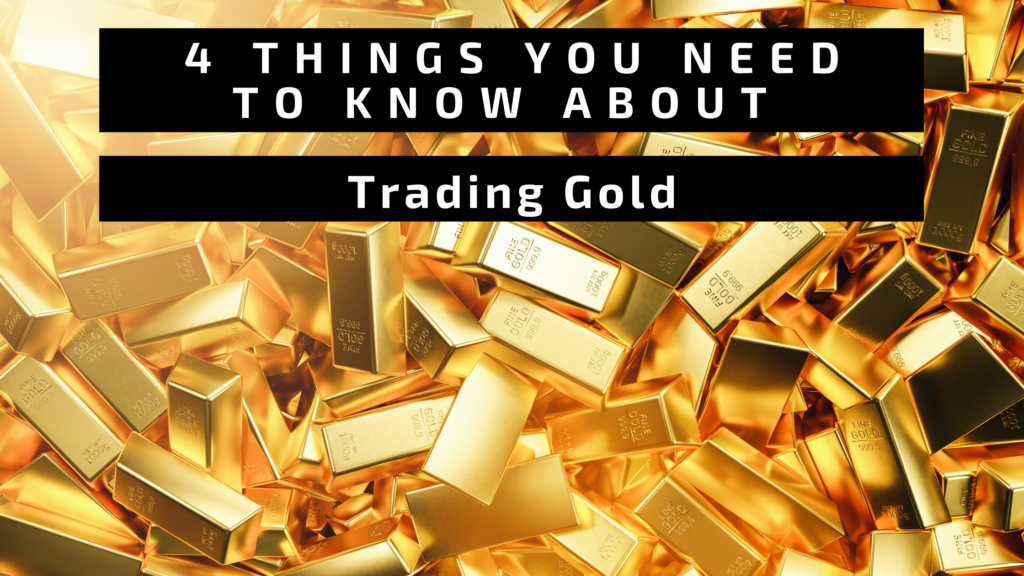The U.S. government holds the largest stockpile of gold reserves in the world. There are an impressive 530,000 gold bars or 6,700 tonnes of gold held in the U.S. Federal Reserve.
Many people invest in gold during tough economic times or during international conflicts as a safe haven and a way to hedge (protect) against inflation. Though gold assets don’t produce cash flow, people perceive them as a store of value.
Trading gold is a great way to expand your investment portfolio and invest in one of the most traded commodities in the world. Keep reading to learn four things you need to know about trading gold.
1. Gold Bullion
You can purchase gold bars or coins through an online dealer, local dealer, or collector. Before purchasing, you’ll want to look up the market price per ounce to make sure you get a fair deal.
One drawback of owning gold bullion is keeping it safe. How do you protect it from thieves? You’d have to have a secure place to store it. Another risk is its difficulty in getting fair market value for it if you need to sell it quickly.
2. Mining Stocks
When you invest in mining businesses that produce gold, you can profit in more ways than one. If the price of gold rises, the mining company’s profits rise. The company can also cash in by raising production to increase profits even more.
3. Gold Futures
The futures market allows you to make money with gold by speculating on the price of gold rising. You could lose it just as easily if the price falls though.
One of the advantages of gold futures is that you can own a lot of gold futures for a small sum of money. If the price goes in the direction you think, then you can make a lot of money.
4. ETFs and Indexes That Track Gold
You can also buy shares of an exchange-traded fund (ETF) or an index fund that tracks gold prices, instead of owning physical gold or gold futures. The benefit of owning shares of a gold ETF or index fund is that you can trade it the way you would sell a stock.
An example of this is the Philadelphia Gold and Silver Index, which has the ticker symbol XAU.
This is a more liquid asset that you can trade any day the market is open for the prevailing price. However, if you want to take this approach, consider getting mentorship or instruction. GoldSignals is one such company that can help you limit your downside risk.
Trading Gold … or Bitcoin?
Trading gold is not something to jump into without doing your homework. Educate yourself on the factors that affect the gold market and work with a company you can trust. Research brokerages before you invest your money or start trading.
Of course, if you like the idea of trading gold, you might also want to learn about buying or trading Bitcoin.
Why? Because Bitcoin is gradually replacing gold as a store of value asset and it has the potential to appreciate (aka, go up in price) more rapidly than gold due to its swift rate of global adoption. Today, cryptocurrencies are the fastest growing technology ever created in human existence, surpassing the rates at which both mobile phones and the internet were adopted.
To learn more about Bitcoin, explore the top Bitcoin books here.
